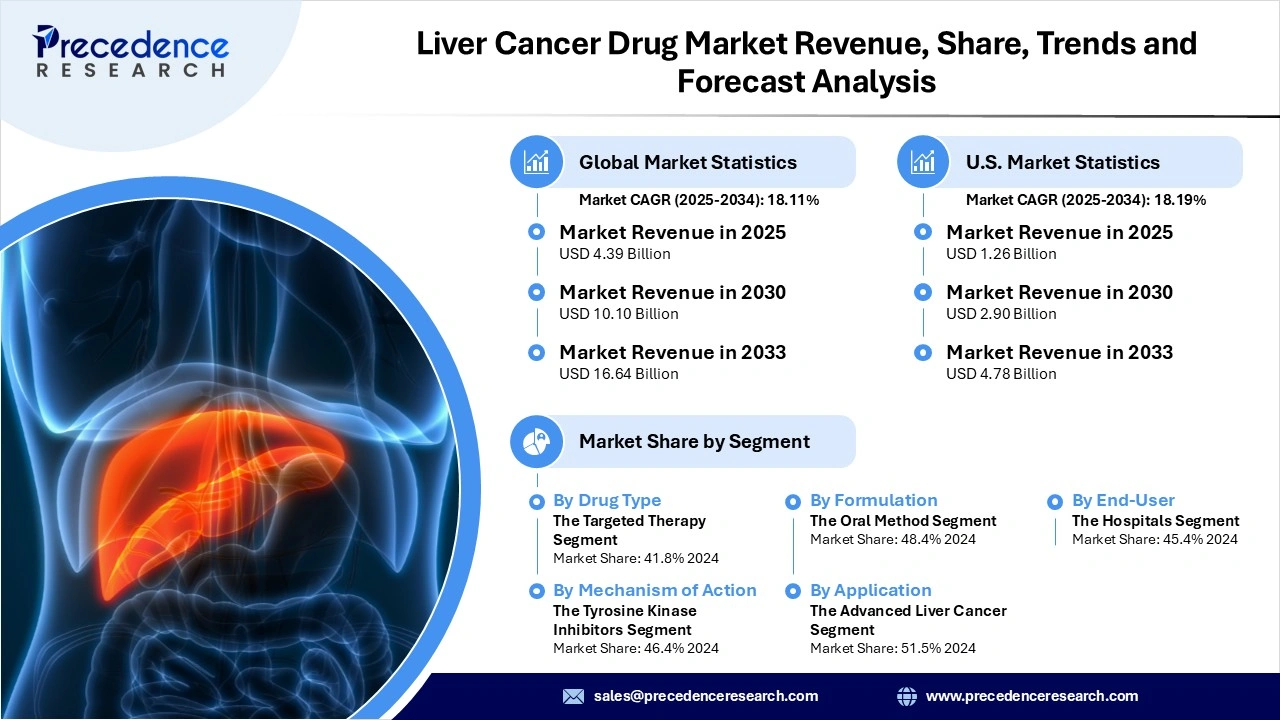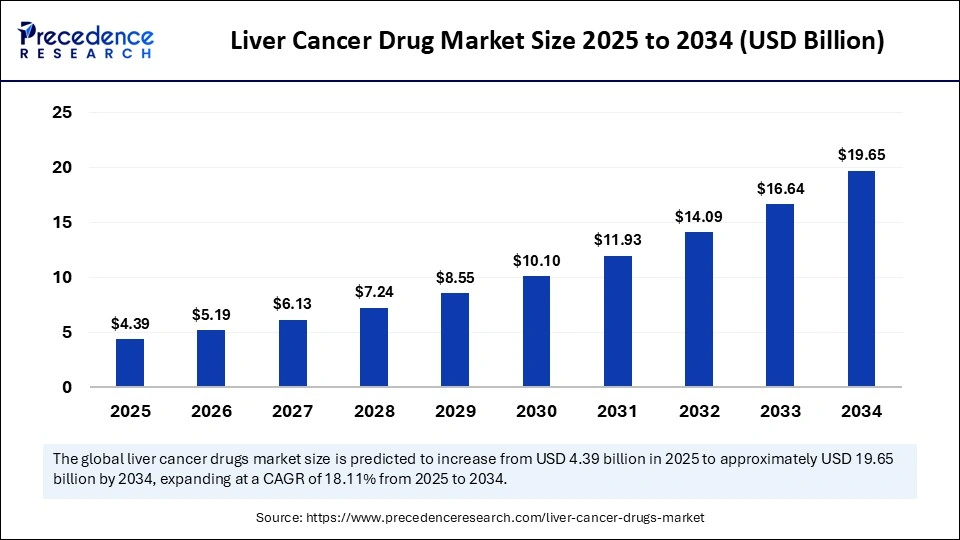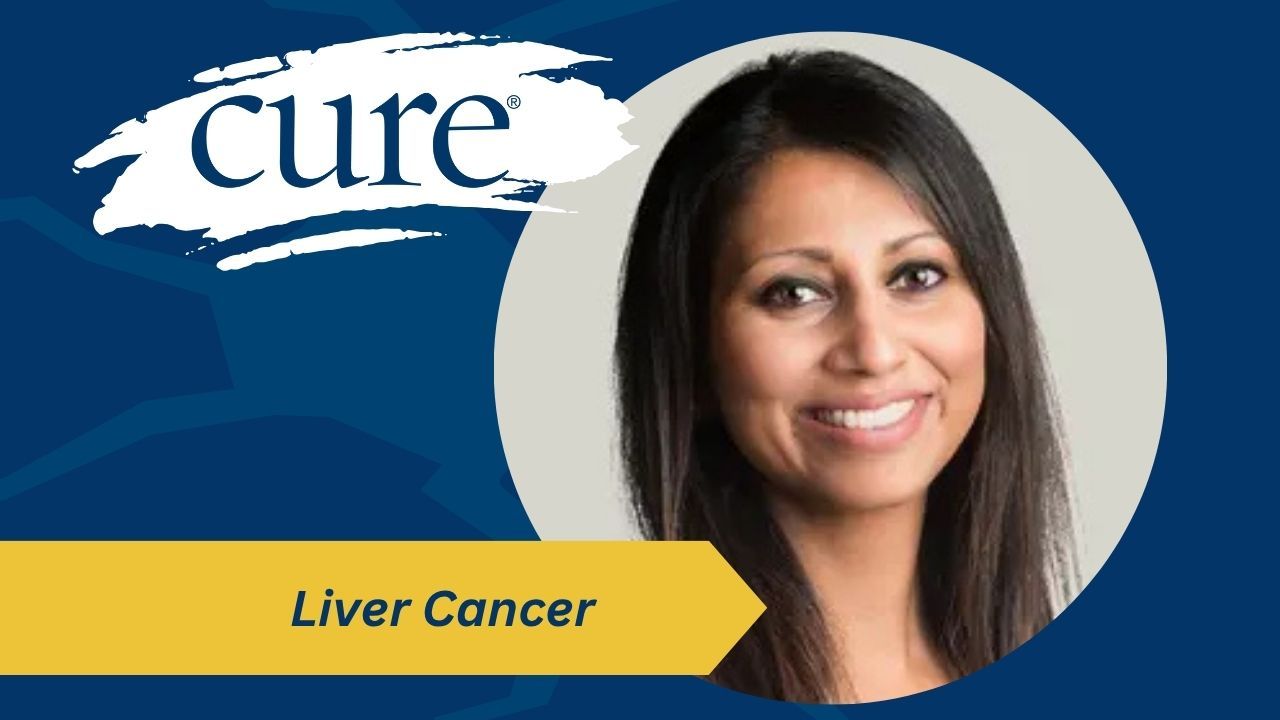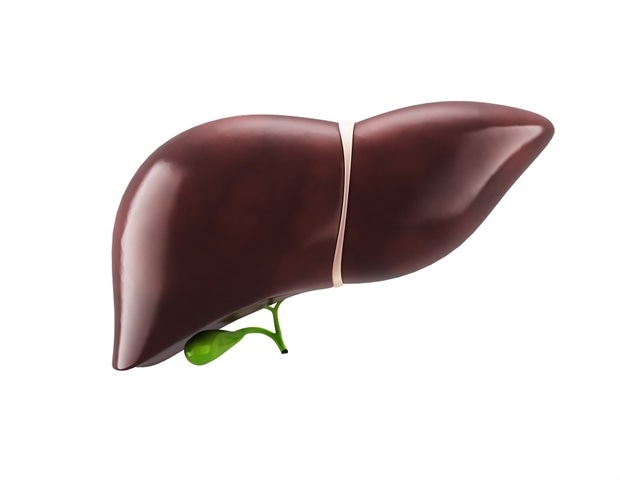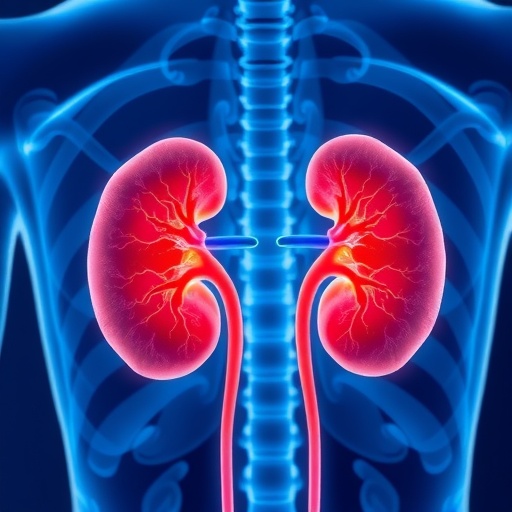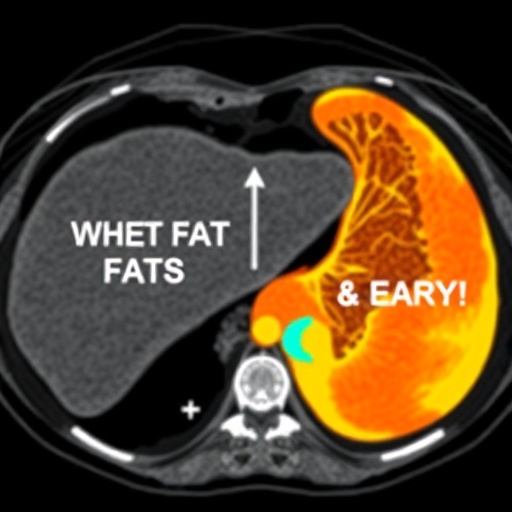Liver cancer patient finds hope in histotripsy treatment amid rare diagnosis
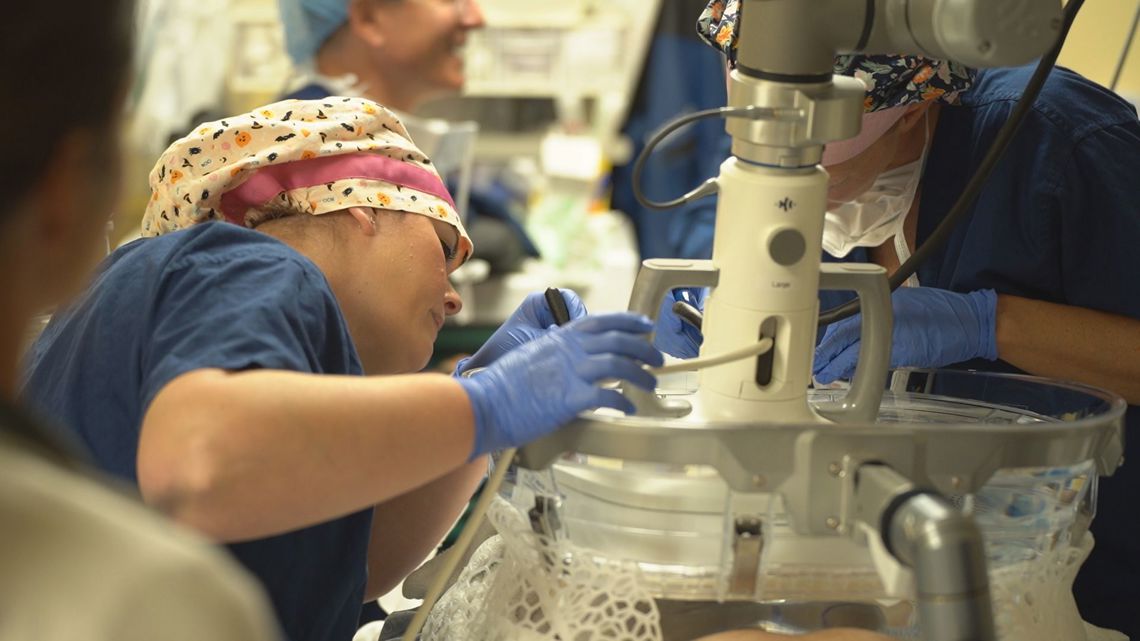
GRAND RAPIDS, Mich. — One year ago, University of Michigan Health-West launched a cancer treatment option called histotripsy. It uses ultrasound waves to liquefy tumors.
Mike Schaefer was given a diagnosis of a rare type of metastatic leiomyosarcoma. His tumors spread throughout his body, including his liver. He said he was given three to five months to live. This was three years ago.
“The regimen of treatment is literally chemotherapy, the only thing that’s available,” said Schaefer. “I don’t like one option is the only option.”
He and his wife began researching other options and discovered histotripsy. The procedure was approved by the Food and Drug Administration (FDA) in 2023 to treat liver tumors. Schaefer applied to UM Health-West, but was initially denied, saying the criteria was very tight in the initial stage.
After applying for a second time, Schaefer was approved for the treatment. He is also taking part in a liver tumor research project with Van Andel Institute.
Schaefer and his wife flew to Michigan from their home near Houston, Texas, for the procedure in October. They picked a tumor in his liver for the treatment.

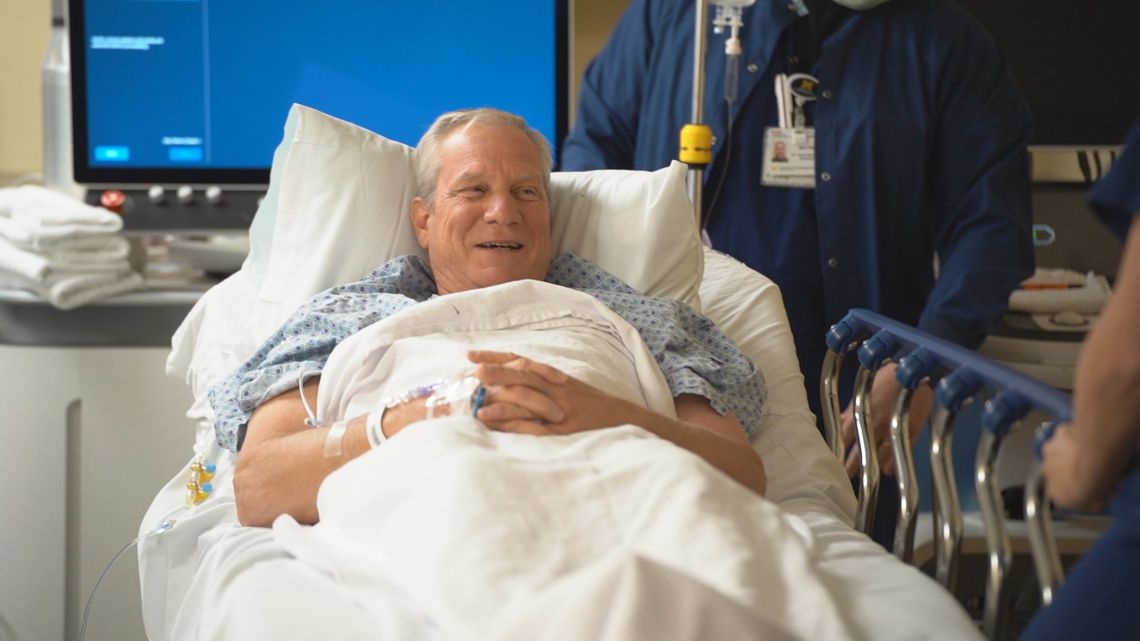
“The first thing you’re asking yourself is, is there a cure? In my case, it’s a very rare cancer, and there’s not a cure out there,” said Schaefer. “Then, is there hope? And specifically, in this case, the University of Michigan is bringing hope to the table.”
For Schaefer, histotripsy is not a cure, but a potential leap in treatment.
“We’re providing hope that, in combination with other therapies, we are able to ignite the immune system in hopes that some of the other tumors decrease in size or go away,” said Dr. Michael Koets, a radiologist at UM Health-West.
Koets explains the histotripsy procedure uses high-energy sound waves focused at one point in space. It’s more precise than other procedures and can liquefy the tumor tissue without damaging adjacent tissues.
“It’s extremely satisfying,” said Koets about working with histotripsy. “That’s one of the reasons why I went into medicine to be a physician, is providing hope, or going into that room after the treatment, when I see them and follow up and saying, ‘Hey, your cancer is gone.'”

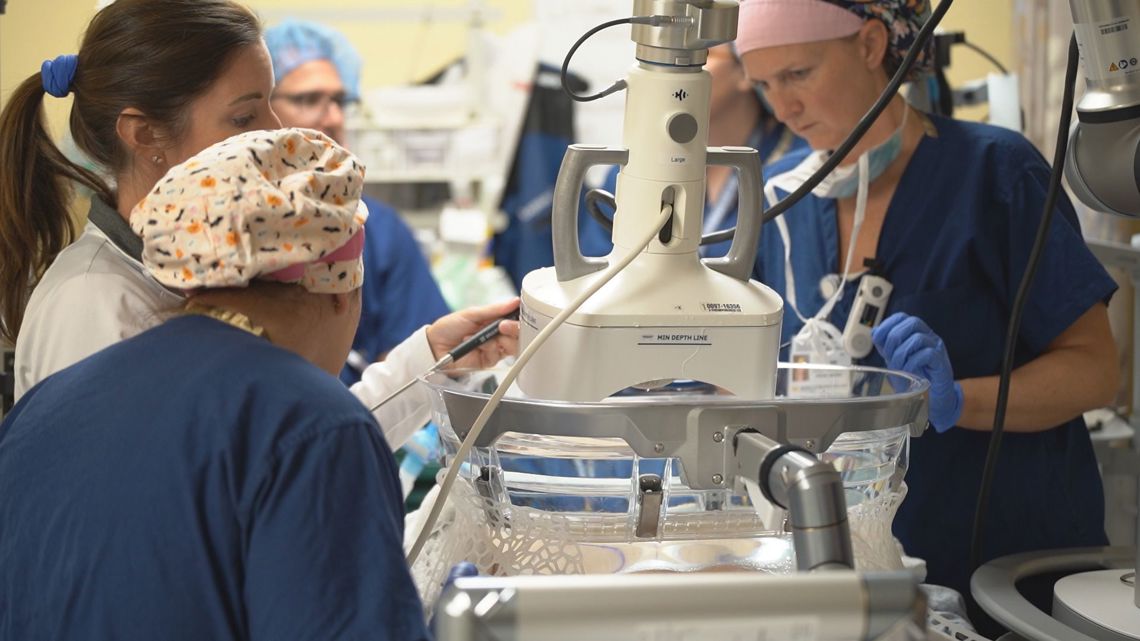
Histotripsy care at UM Health-West is provided by the Cancer Network of West Michigan, a partnership with Trinity Health, UM Health-West and Michigan Medicine.
Weeks after the treatment, Schaefer said he is feeling great.
“When you’re told three to five months to live, never give up. Three years later, you’re still here,” said Schaefer. “I plan on being around for a while. So, figure out what’s next?”
Schaefer also said he changed his diet and made other lifestyle changes after his diagnosis.
Histotripsy is currently FDA-approved only to treat liver cancer. However, clinical trials are underway to treat kidney, lung and pancreatic cancers in the future.
Schaefer also wanted to help in the research of histotripsy, so other patients may have more options one day to treat his rare type of cancer.
“When you’re dealing with a very small population, you realize that whatever you can do to help the future is what you should be doing,” said Schaefer.

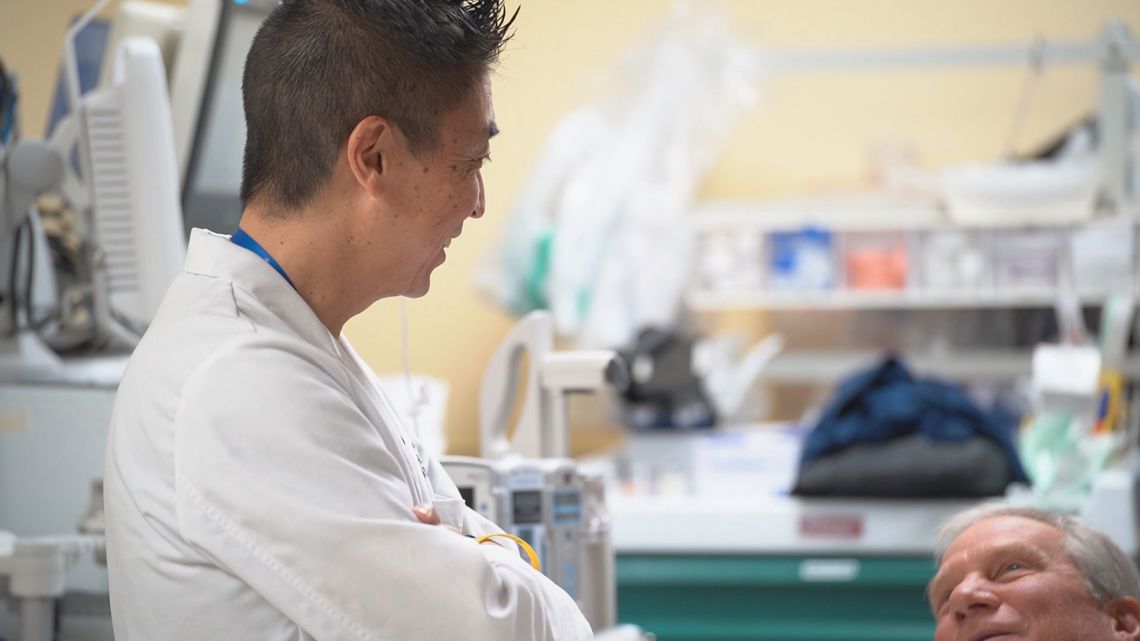
link

